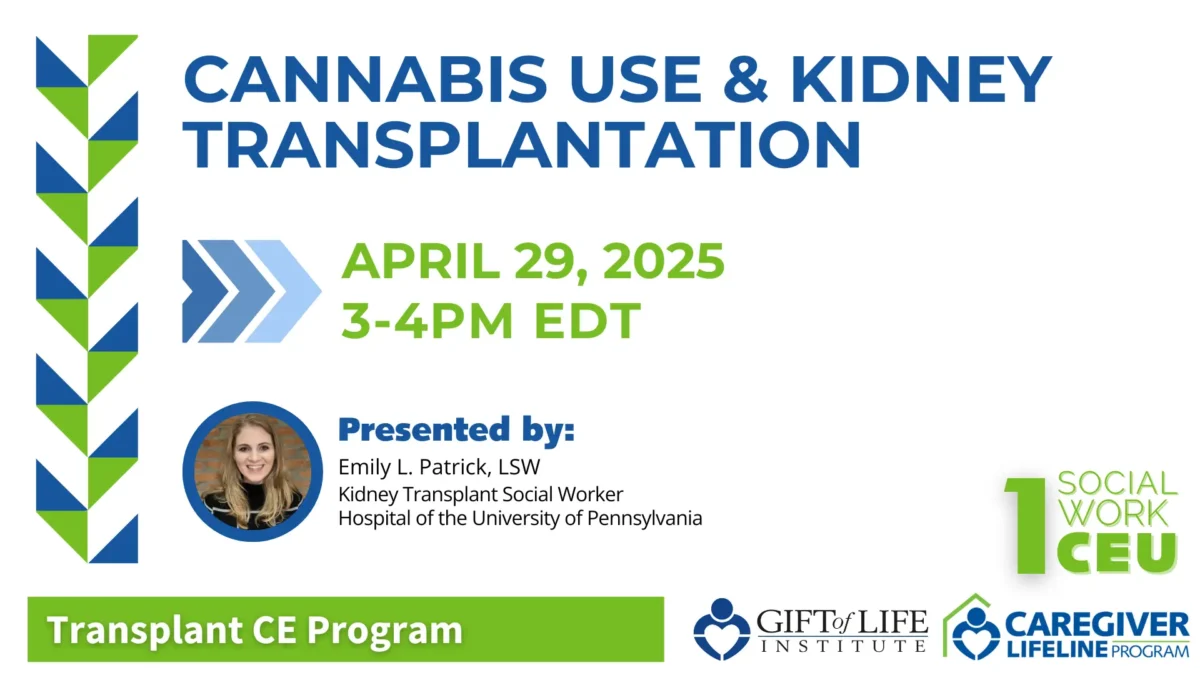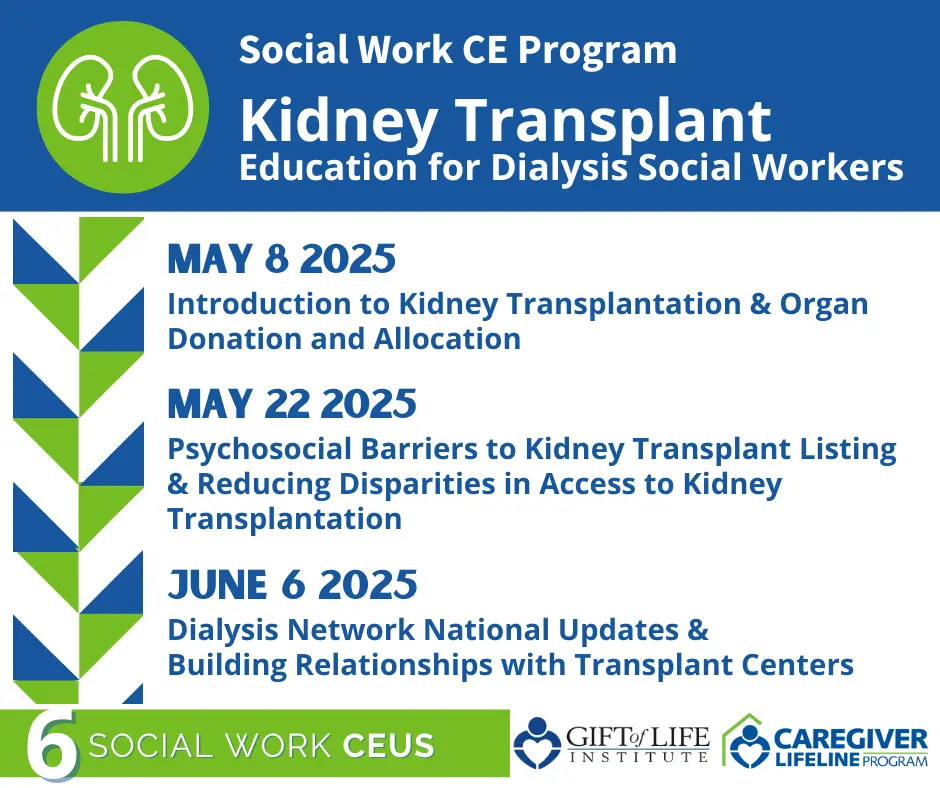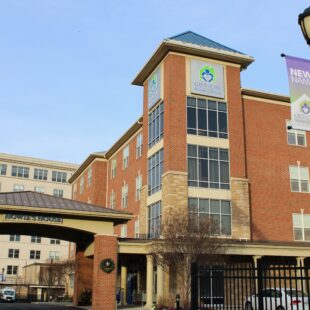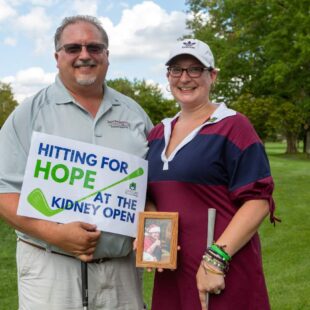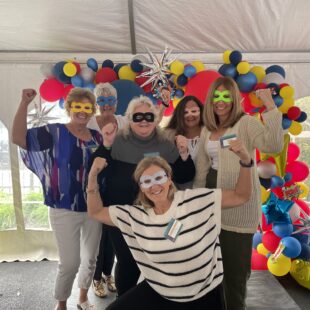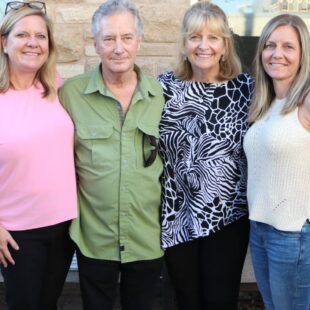Programs for Transplant Professionals
Gift of Life Howie's House is approved by the Pennsylvania State Board of Social Workers, Marriage, and Family Therapists and Professional Counselors to offer continuing education for social workers, marriage and family therapists, and professional counselors. The Gift of Life Howie's House maintains the responsibility of this program.
We offer various programs throughout the year, please check back for upcoming programs.
Cannabis Use & Kidney Transplantation
Apr 29, 2025 2:00PM – 3:00PM EDT
LEARNING OBJECTIVES
- Understand how the legal history of cannabis has influenced cannabis use in healthcare.
- Evaluate our previous cannabis use practice within the transplant process.
- Examine current literature on cannabis use and transplantation.
- Share our policy change on cannabis use in the kidney transplant process.
Presented by:
Emily L. Patrick, LSW
Kidney Transplant Social Worker
Hospital of the University of Pennsylvania
This program is approved by the National Association of Social Workers (Approval # 886593858-4761) for 1 continuing education contact hour.
The following states do not accept National CE Approval Programs: New Jersey, New York, and West Virginia.
Kidney Transplant Education for Dialysis Social Workers
This three-part program equips dialysis social workers with a deeper understanding of the kidney transplant process, enabling them to better educate patients, confidently refer them for transplant evaluations, and provide comprehensive psychosocial support.
Download program brochure with learning objectives
Session 1
May 8, 2025 3PM – 5PM EDT
Introduction to Kidney Transplantation & Organ Donation and Allocation
Presented by:
Kim Phillips, RN, BSN, Kidney Outreach and Education, Jefferson Transplant Institute
John Clarke, Transplant Information Center, Gift of Life Donor Program
Session 2
May 22, 2025 3PM – 5PM EDT
Psychosocial Barriers to Kidney Transplant & Reducing Disparities in Access to Kidney Transplantation
Presented by:
Emily Patrick, LSW, Penn Transplant Institute, Hospital of the University of Pennsylvania
Avrum Gillespie, MD, Division of Nephrology, Hypertension, and Kidney Transplantation, Temple Health
Session 3
June 5, 2025 3PM – 5PM EDT
Dialysis Network National Updates & Building Relationships with Transplant Center
Presented by:
Chris Brown, Quality Insights, ESRD Networks 3&
Christina Psathas, MA, Renal and Pancreas Transplant Division, Cooperman Barnabas Medical Center
This program is Approved by the National Association of Social Workers (Approval # 886593858-4474) for 6 continuing education contact hours. The following states do not accept National CE Approval Programs: New Jersey, New York, and West Virginia

